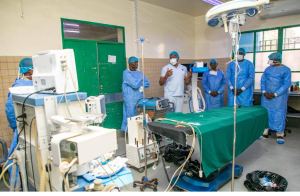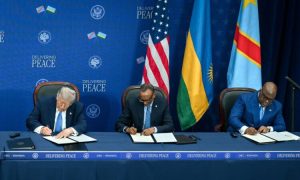One year of the AES: consolidated sovereignty and a promising future

A year ago, the Alliance of Sahel States (AES) was established, marking a significant turning point for Mali, Burkina Faso, and Niger. Founded on principles of sovereignty, cooperation, and regional solidarity, this bold and visionary union has rapidly become a beacon of resilience against both regional and global challenges.
Led by the determined leaders—Colonel Assimi Goïta of Mali, Captain Ibrahim Traoré of Burkina Faso, and General Abdourahamane Tiani of Niger—the AES has demonstrated that a commitment to freedom and dignity can overcome adversity.
From its inception, the AES represented a fresh direction for the Sahel. By rejecting external pressures and foreign influences, these nations have carved out a new path, abandoning imposed models to embrace a development strategy aligned with their people’s realities and aspirations.
Their decisive split from ECOWAS has been a landmark moment, highlighting their commitment to a regional alliance rooted in patriotism, resilience, and pan-African cooperation.
Noteworthy achievements in this inaugural year include the introduction of the AES biometric passport—a powerful symbol of regional unity and integration. Economically, the AES leaders have made strides towards full sovereignty, with significant advances in agriculture, infrastructure, and energy.
Efforts to improve transportation and communication infrastructure are already underway, and progress towards food self-sufficiency is notable, with support programs for farmers and the adoption of modern techniques bringing the goal of sustainable agriculture closer to reality.
In terms of defense and security, the AES has taken commendable steps. Recognizing the regional threats, the alliance has enhanced collective security through military cooperation, pooling resources and forces to address jihadist challenges while asserting their sovereignty.
As the AES celebrates its first anniversary, it is fitting to commend the leaders—Goïta, Traoré, and Tiani—for their visionary leadership. Their efforts have set a solid foundation for the AES to become a model for other African nations seeking true and lasting independence.
The future looks promising, with opportunities to strengthen economic integration, foster cultural and scientific exchanges, and build a resilient Sahelian community.
This anniversary not only signifies success but also the beginning of a hopeful journey where the Sahel states, united, will forge their own path, free and sovereign.
Titi KEITA












